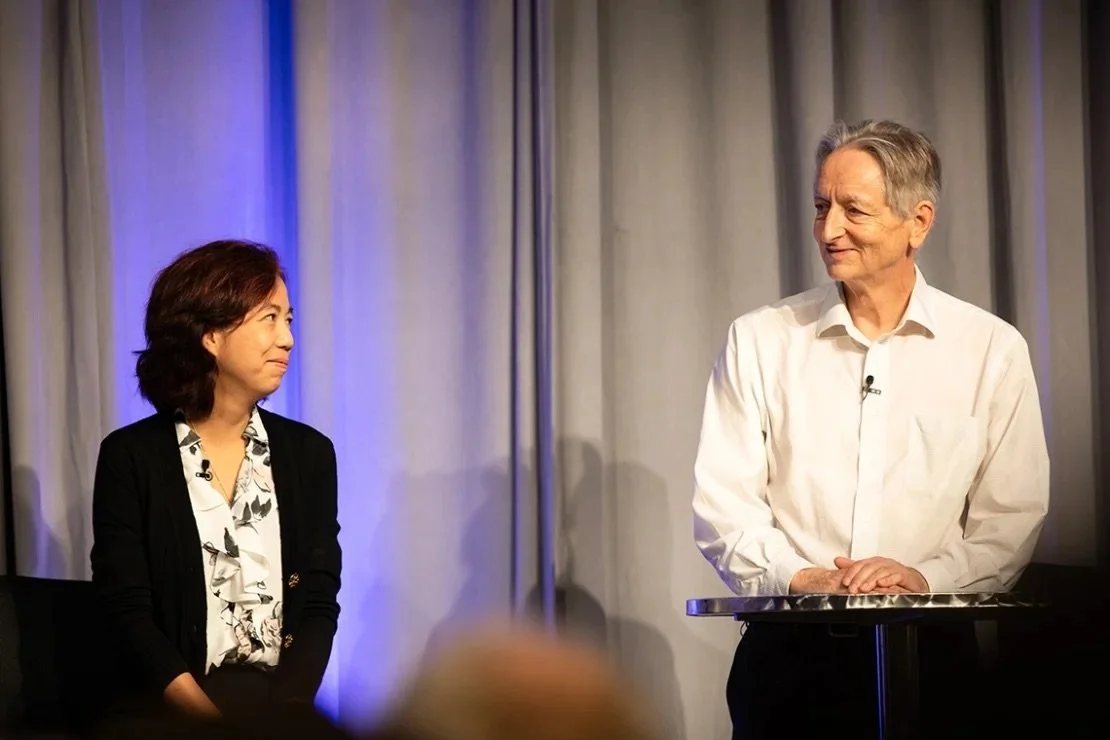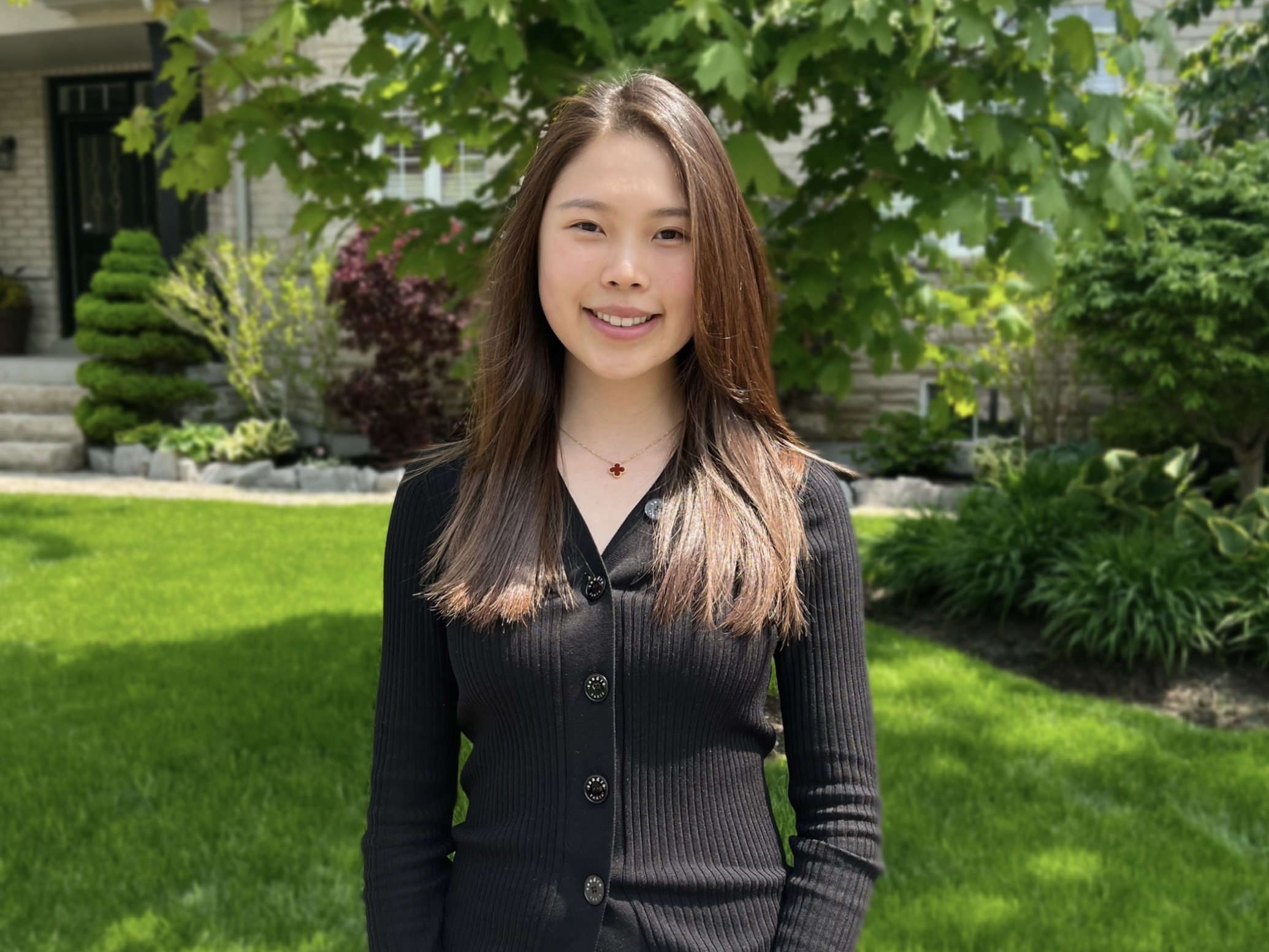In his new book, Professor Steve Easterbrook explains why we can trust computer models when they say we’re in a climate crisis.
GPTZero enters the chat: Alum Alex Cui and his breakthrough in AI detection
Humanity is at a ‘turning point’ with AI, Geoffrey Hinton tells CBS News's 60 Minutes
University Professor Geoffrey Hinton speaks with 60 Minutes correspondent Scott Pelley about advanced artificial intelligence. (Image courtesy of 60 Minutes)
Geoffrey Hinton, often dubbed the “godfather of artificial intelligence,” explained the potential benefits — and risks — of the technology he helped bring into existence on CBS News’s 60 Minutes.
A University Professor Emeritus in U of T’s Department of Computer Science, Hinton told correspondent Scott Pelley about his decision earlier this year to sound the alarm about the existential threat posed by the rapid development of large language models such as ChatGPT and Google’s PaLM.
The cognitive psychologist and computer scientist, whose research contributions set the stage for the current acceleration of AI development, says he has no regrets because of the technology’s enormous potential benefits. But he warns that humanity is at a “turning point” in determining AI’s trajectory — and that the decisions we make today could have far-reaching consequences for the future.
“I think my main message is there's enormous uncertainty about what's (going to) happen next,” Hinton told the newsmagazine program. “These things do understand. And because they understand, we need to think hard about what's going to happen next. And we just don't know.”
Watch the 60 Minutes interview
Geoffrey Hinton and Fei-Fei Li draw thousands to talk about responsible AI development
Nandita Vijaykumar and Igor Gilitschenski win 2022 Sony Focused Research Award
Bo Wang appointed chief AI scientist at University Health Network
U of T CS faculty and alumni among Time magazine’s TIME100 Most Influential People in AI
2023 TIME100 AI cover (Credit: TIME)
Time magazine has unveiled the inaugural TIME100 AI, a new list highlighting the 100 most influential people in artificial intelligence, and U of T Department of Computer Science faculty and alumni are among those recognized.
The 2023 TIME100 AI issue is categorized by leaders, innovators, shapers and thinkers who are influencing today’s AI landscape, and features in-depth profiles and interviews.
Alumnus Aidan Gomez (HBSc 2018) who is the CEO and co-founder of Cohere, a Toronto-based company that builds and provides language AI models to enterprises, is credited by the magazine for co-authoring “a research paper that would change the entire AI industry” that proposed a novel neural network technique called the transformer. The magazine notes that Gomez chose to focus on working with businesses “because he believed that it was the ‘best way to close the gap’ between AI models being explored in theory vs. being deployed out in the world.”
Professor Raquel Urtasun, CEO and founder of autonomous driving startup Waabi, tells the magazine about the upsides to entering the space later as a “second mover.” Urtasun notes that it allowed the company to take advantage of recent advances in AI, such as the ability to train its driverless software “much faster and more cheaply than its competitors in part by driving virtual trucks inside a highly realistic AI-generated simulation.”
Alumnus Ilya Sutskever (HBSc 2005, MSc 2007, PhD 2013), co-founder and chief scientist at OpenAI, is noted by the publication as “one of the industry’s most celebrated technical minds.” Before joining OpenAI as a founding member in 2015, Time notes he “was already famous for breakthroughs that turbocharged the fields of computer vision and machine translation.”
University Professor Emeritus Geoffrey Hinton is recognized as “one of the most influential AI researchers of the past 50 years” playing an instrumental role in the development and popularization of neural networks. The magazine also details his recent decision to leave his post at Google to speak more freely about the risks of AI and “his regrets over helping bring that technology into existence.”




















